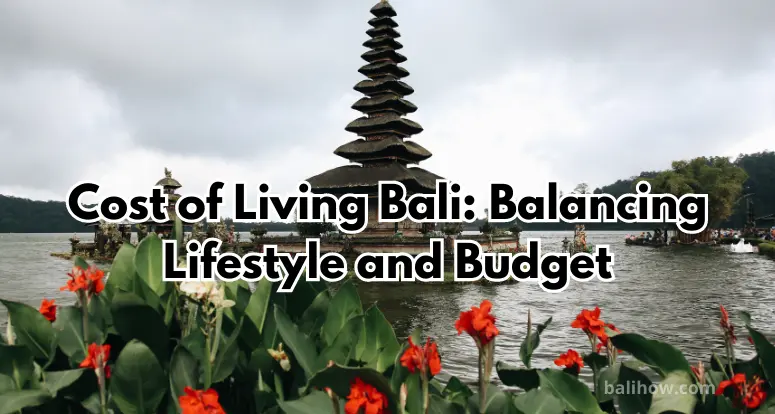Cost of Living Bali – Bali, a tropical island paradise in Indonesia, is known for its stunning beaches, beautiful temples, and lush greenery. It’s no wonder why Bali is a popular tourist destination and has become a favorite for those seeking a change of pace from the hustle and bustle of city life. However, Bali isn’t just a vacation spot; it’s also a place where many people choose to live. In this article, we’ll take a closer look at the cost of living in Bali.
Cost of Living Bali
Accommodation
The cost of accommodation in Bali can vary greatly depending on where you choose to live. If you’re looking to live in the popular tourist areas of Kuta or Seminyak, you can expect to pay a premium for accommodation. However, if you’re willing to live further inland, in areas such as Ubud or Canggu, you can find much more affordable options.
For a basic, one-bedroom apartment in the popular tourist areas, you can expect to pay around $500-$700 per month. If you’re looking for something more luxurious, such as a villa with a private pool, you can expect to pay anywhere from $1,000-$3,000 per month. In more affordable areas, such as Ubud, you can find a basic one-bedroom apartment for around $200-$400 per month.
Food
One of the great things about Bali is the food. Whether you’re looking for traditional Indonesian cuisine or something a little more international, Bali has it all. The cost of food in Bali can vary depending on where you choose to eat. If you’re looking to eat at high-end restaurants, you can expect to pay around $20-$30 for a meal. However, if you’re willing to eat at local warungs (small, family-owned restaurants), you can find a meal for as little as $2-$3.
For groceries, Bali has several supermarkets where you can find both local and imported goods. A basic grocery run for a week can cost anywhere from $20-$50, depending on what you buy.
Transportation
Getting around Bali can be a bit tricky, as public transportation is not as readily available as it is in other places. However, there are still plenty of options for getting around. If you’re comfortable riding a scooter, you can rent one for around $50-$80 per month. Taxis are also available, with prices varying depending on the distance you need to travel.
If you’re planning on driving in Bali, it’s important to note that you’ll need an international driver’s license. The cost of renting a car can vary depending on the type of car you want and the duration of your rental.
Utilities
The cost of utilities in Bali can vary depending on your usage. For a basic one-bedroom apartment, you can expect to pay around $30-$50 per month for electricity, water, and gas. Internet and cable television can also be added for an additional cost.
Healthcare
Bali has several hospitals and clinics that provide both western and traditional medicine. The cost of healthcare in Bali can vary depending on the type of treatment you need. A basic doctor’s visit can cost anywhere from $10-$20, while more extensive treatments can cost several hundred dollars.
It’s important to note that healthcare in Bali may not be up to the standards that you’re used to in your home country. For this reason, many expats choose to purchase international health insurance before moving to Bali.
Overall, Bali can be a very affordable place to live if you’re willing to make some adjustments to your lifestyle. While the cost of living can vary depending on where you choose to live and what you choose to do, it’s possible to live comfortably in Bali for around $1,000-$1,500 per month. However, if you ‘re looking for a more luxurious lifestyle, you can expect to pay more.
One thing to keep in mind is that the cost of living in Bali has been rising in recent years, particularly in the popular tourist areas. This is partly due to the influx of tourists and expats, which has driven up the demand for housing and other amenities.
Another factor to consider is the impact of the COVID-19 pandemic on Bali’s economy. With a significant drop in tourism, many businesses have struggled, and some have closed permanently. This has resulted in job losses and reduced income for many locals and expats alike.
Despite these challenges, Bali remains a beautiful and vibrant place to live. Its natural beauty, friendly people, and unique culture make it a popular destination for those seeking a more laid-back lifestyle. If you’re considering a move to Bali, it’s important to do your research and carefully consider the cost of living, as well as any cultural or practical adjustments you may need to make.
